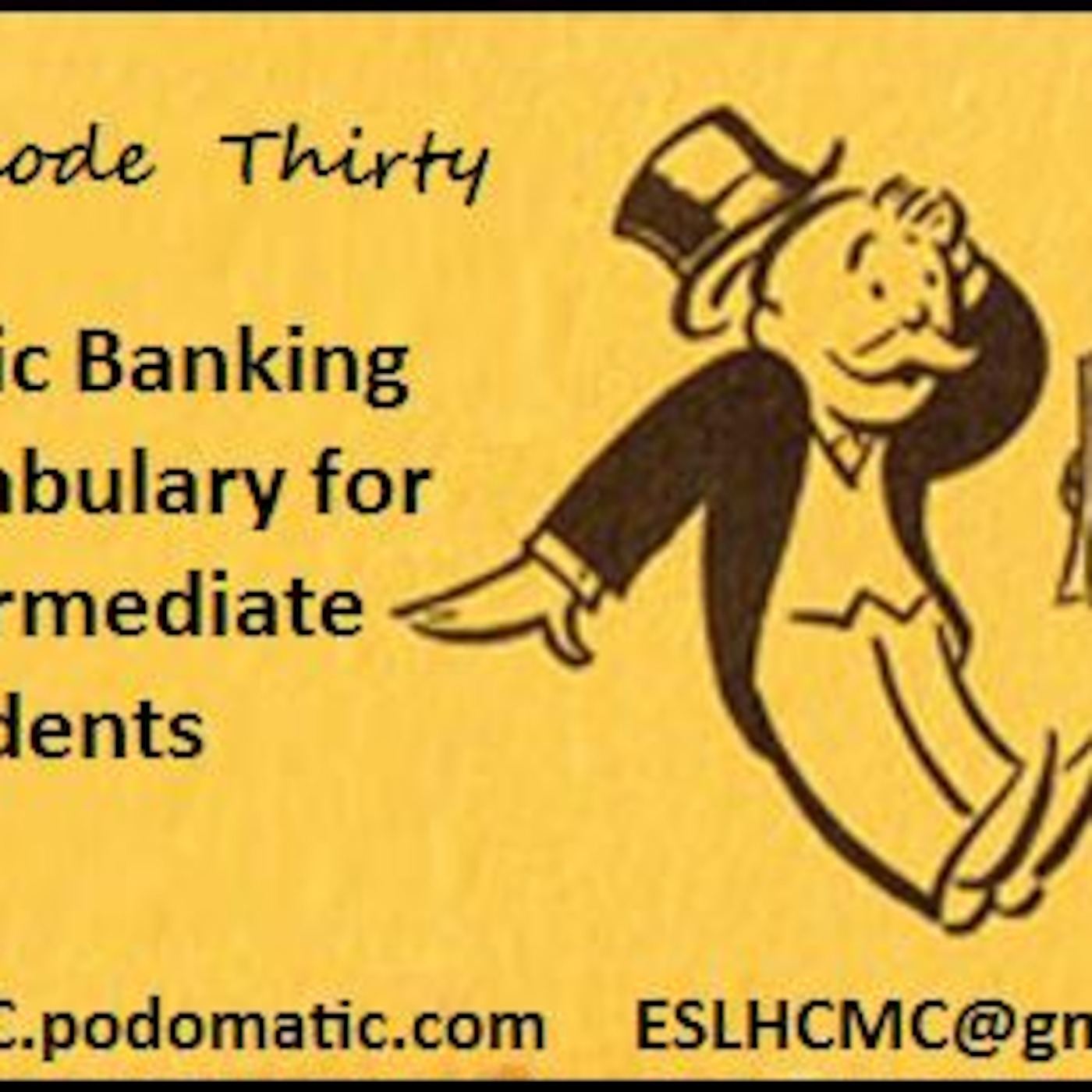Episode 30 - Basic Banking Vocabulary for Intermediate Students
- Author
- ESL in Ho Chi Minh City
- Published
- Wed 22 Sep 2010
- Episode Link
- https://www.podomatic.com/podcasts/eslhcmc/episodes/2010-09-21T23_41_48-07_00
This podcast will introduce you to common banking terms. If you would like a full transcript of this podcast or additional exercises, please write to us at [email protected]
Here are some of the most common words used in everyday banking:
Money = well if you don't know what money is, I cannot help you, please pause this podcast and seek professional help.
Welcome back. Okay now that everyone knows what money is let's move on.
currency = specific form of money. Such as dollar, dong, or euro.
funds = a sum of money
denomination = set numerical series of values of a currency. Such as one dollar, two dollars, five dollars, ten dollars, twenty dollars, fifty dollars, and one hundred dollars.
Cash = physical money
to cash = to exchange a check for the specified cash amount
bills = physical paper money
change = coins, generally of lower denomination. Also the funds not used and returned in a transaction, commonly used as to give change or to make change
to make change = to exchange cash denominations for the same amount in different lower denominations
to break = in banking, to make change
transaction = exchange of services or goods, typically currency for a product or service
financial institution = general term for any business that collects or lends money
bank = a business that collects and lends money
credit union = a not-for-profit cooperative institution that collects and lends money.
central bank = government controlled bank that controls the money supply and interest rates
interest = a charge on borrowed money, usually a percentage of the amount borrowed
principal = the amount borrowed that interest is calculated for
fixed rate = unchangeable interest rate
variable rate = changeable interest rate based on a predetermined conditions or calculations
Account = a contractual relationship between a person and a financial institution, also bank account
balance = amount of money collected and held in an account or amount of money owed on loans
Account statement = detailed summary of an account which includes transactions, balances and interest
deposit = the funds held in an account or a transaction adding to the funds held in an account
to deposit = to add funds to an account
withdrawal = a transaction subtracting from the funds held in an account
to withdraw = to subtract funds from an account, usually done by the owner of the account
teller = or bank teller is an employee that generally does basic account transactions for customers
loan officer = an employee that helps customers borrow money from the financial institution
interest bearing account = or interest earning account pays a percentage of the deposit held over a specific amount of time
dividend = the interest earned from interest earning accounts
checking account = type of account usually used for expenses and transactions that pay others
check = a written order of repayment authorizing a FI to withdraw a specific amount of funds from a checking account to pay the specific person or business listed on the check
cashier's check = a collected or pre-paid order of repayment, issued directly from a FI to pay the specific person or business listed on the check
money order = similar to a cashier's check, generally used for small amounts
checkbook = the binder or small notebook used to hold unused checks, as well as to record check information and balances
savings account = type of account that usually earns interest and is generally not used often for expenses
CD = short for Certificate of Deposit, type of account that earns a fixed amount of interest for a fixed amount of time. Generally the funds are held in the account and cannot be withdrawn without a penalty fee before the maturity date, or the end of the fixed amount of time
time deposit = another term for CD
transfer = a withdrawal from one account that is used as a deposit for another account, generally at the same FI
wire transfer = (continued)
